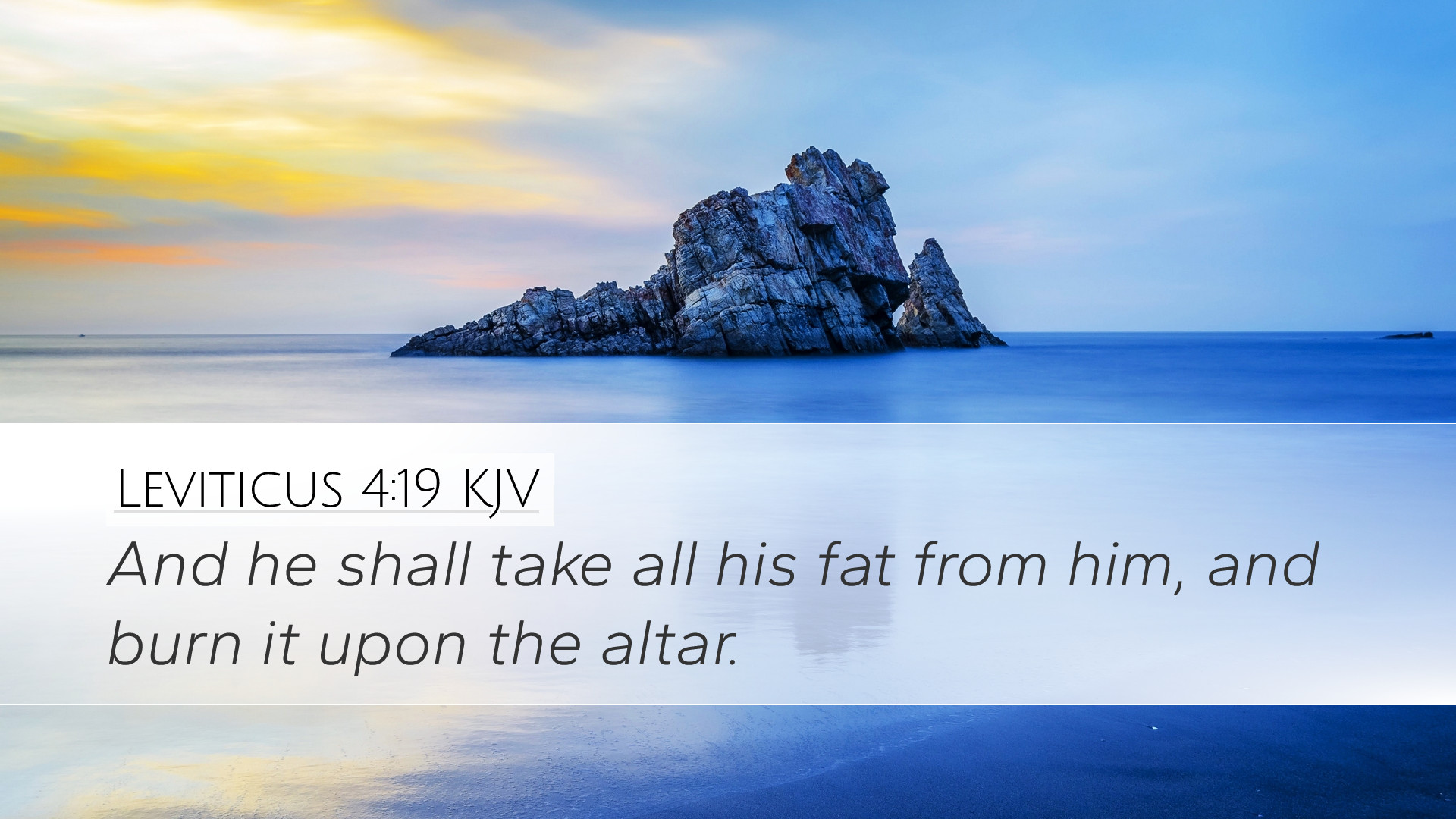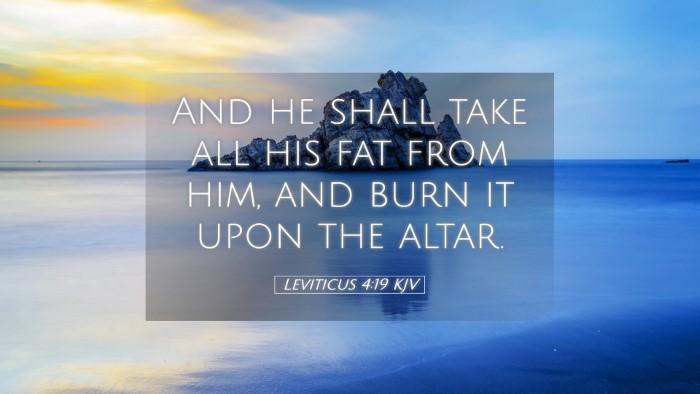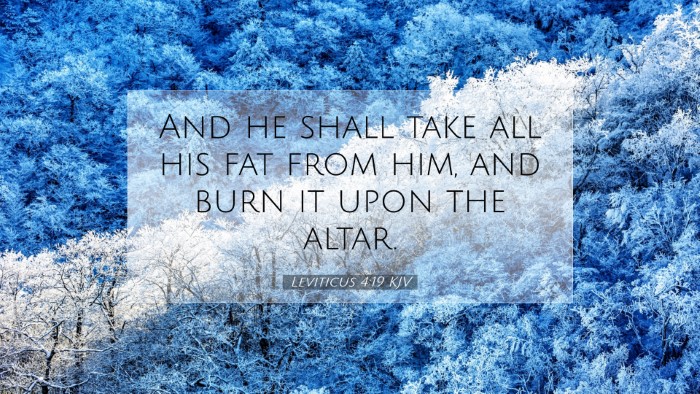Commentary on Leviticus 4:19
Leviticus 4:19 states: "And the priest shall take all the fat thereof, and burn it upon the altar." This verse comes from a passage detailing the sin offering, emphasizing the role of the priest in the sacrificial system of ancient Israel. In this commentary, we delve into the implications and meanings derived from notable public domain commentaries, providing insights valuable to pastors, students, theologians, and Bible scholars.
Contextual Analysis
The book of Leviticus is foundational for understanding the holiness required by God from His people. The chapter in which Leviticus 4:19 is found discusses the sin offerings for different individuals, from the high priest to the common person. Leviticus 4 articulately illustrates the seriousness with which sin is regarded and the covenantal relationship between God and Israel.
Matthew Henry's Commentary
Matthew Henry emphasizes the idea of sin and atonement present in this chapter. His reflections on verse 19 highlight the nature of the fat, which was considered the choicest part of the animal - symbolizing the best that a person could offer to God. He notes that the fat burned upon the altar serves as an important aspect of the offering, which must be entirely dedicated to God.
Henry points out that the act of burning the fat shows God's acceptance of the offering, and it serves to illustrate the principle that something of value must be given to atone for sin. He notes that this act symbolizes both propitiation and expiation, as it signifies both appeasing God’s righteous anger and removing the guilt associated with sin.
Albert Barnes' Notes
Albert Barnes, in his exegesis, expands on the sacrificial system's significance in maintaining the covenant relationship with God. He elaborates that the fat represents the welfare and abundance God desired for His people, indicating that the presence of abundant life was integral to the offerings.
Barnes further discusses the role of the priest, who acts as an intermediary between God and the worshipper. He underscores that the priest's taking of all the fat signifies that the sin has been adequately addressed. The totality of the fat being offered indicates thoroughness in atonement, which is essential for forgiveness. Barnes notes that in the priest's actions, we see a foreshadowing of Christ as our eternal High Priest, who presents us faultless before God.
Adam Clarke's Commentary
Adam Clarke provides a deeper liturgical perspective, emphasizing the ritualistic elements involved in the sacrificial process. He notes the importance of ritual purity and describes how the act of sacrificing and burning fat illustrates the concept of sanctification and the worship’s direction towards God. Clarke emphasizes that the fat was meant for God alone, as seen in his detailed discussion of the symbolism of fat in the Old Testament, placing significance on the idea that what is offered to God must be without blemish and fully set apart.
Clarke also draws attention to the communal aspects implied in these offerings, suggesting that sacrifices are not merely individual acts but serve as corporate acts of worship that bind the community to God. This interpretation reinforces the theme of collective responsibility in sin and atonement.
Theological Implications
The theological implications of Leviticus 4:19 are profound. The act of burning the fat symbolizes a tangible method for dealing with the intangible reality of sin. It signifies the holiness of God and the necessary measures required to maintain a right relationship with Him. Sin brings a separation from God, and the offering serves to restore that connection.
Atonement and New Testament Parallels
The theme of atonement found in Leviticus 4:19 carries over to the New Testament, where the ultimate sacrifice was made by Christ. Just as the fat was entirely dedicated, so too was Christ fully devoted to the work of atonement. The New Testament reveals that He was the perfect lamb whose sacrifice fully addressed the burgeoning need for reconciliation between God and humanity.
Pastoral Applications
- Understanding Sin: Pastors can use this verse to help congregants grasp the seriousness of sin and the need for confession and atonement in their own lives.
- The Role of Priesthood: The verse opens discussions on the priesthood of all believers, recognizing how each Christian is called to intercede for others and present themselves fully to God, just as the priests did in the Old Testament.
- Offering Our Best: The emphasis on the 'fat' reminds congregations to give God their best, whether in worship, service, or their lives in general.
Conclusion
Leviticus 4:19 serves as a significant reminder of the seriousness of sin, the necessity for atonement, and the priestly role in mediating between God and humanity. Through insights provided by biblical scholars in public domain commentaries, we glean that the systems put in place for worship are more than mere ritual; they point to profound truths about human dependency on God's mercy, the need for holiness, and the ultimate sacrifice of Christ that fulfills the law and the prophets.


